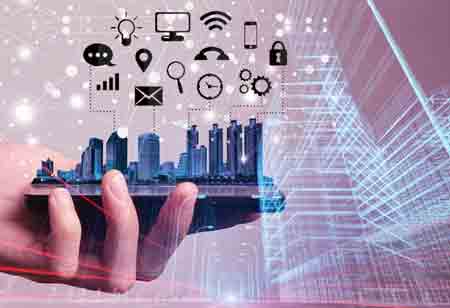THANK YOU FOR SUBSCRIBING
The Role of IoT in Smart Cities
A sustainable infrastructure will help in energy saving and reduce the impact of energy consumption on the atmosphere. The combination of smart infrastructure with proper urban services can transform any city into a smart city.

By
Apac CIOOutlook | Friday, August 14, 2020
Stay ahead of the industry with exclusive feature stories on the top companies, expert insights and the latest news delivered straight to your inbox. Subscribe today.
A sustainable infrastructure will help in energy saving and reduce the impact of energy consumption on the atmosphere. The combination of smart infrastructure with proper urban services can transform any city into a smart city.
Fremont, CA: The future is filled with technology-enabled applications. Disruptive technologies such as Artificial Intelligence (AI), Blockchain, Machine learning, Big Data, and Internet of Things (IoT) have made a significant impact on all sectors. Cities that we live in today are set to transform significantly in the coming years. Smart cities are no more a concept for the distant future. Thanks to the advancement of disruptive technologies, smart cities are here and are showing promising results in various places. A smart city will sort out human life with communication assistance, traffic management, and other day to day activities. Smart technology will help citizens ensure that technology will not harm the environment in any way. A smart city will be the key to the future of a modern city infrastructure that is self-sufficient and causes minimal or no damage to the environment.
A sustainable infrastructure will help in energy saving and reduce the impact of energy consumption on the atmosphere. The combination of smart infrastructure with proper urban services can transform any city into a smart city. The contrast between a regular city and a smart city is vast.Smart cities are designed to provide a comfortable lifestyle to the dwellers and cause less harm to the environment. This is possible if the right amount of effort is put into it. The key to a smart city is its citizens as they work in tandem with the management. By engaging in maintenance work, they can ensure that the city is protected and well taken care of.
IoT is a technology with full-scale applications. The technology has proven its worth in various industries and can be leveraged for smart cities as well. IoT devices can be used to manage smart water meters and transform the transportation sector. The internet of things is a simple way to communicate with all the related devices. There are numerous smart devices available in the market today, and nearly all of these can be connected using the IoT technology. IoT enables the communication between smart devices and ensures all communication takes place smoothly.
Traffic congestion is a common nuisance that almost every city has to tackle. A smart city can leverage IoT technology to overcome this common problem. People prefer to travel using personal vehicles than public transport, increasing traffic on roads, and this figure is only set to increase further. IoT based traffic lights are now an upcoming trend. They have weather sensors mounted on them and can increase or decrease the intensity of traffic lights by themselves. These sensors will help adjust the brightness of lights from time to time, but they also detect murky weather and adjust the lights during that time.
See also: Top PTC Partners





